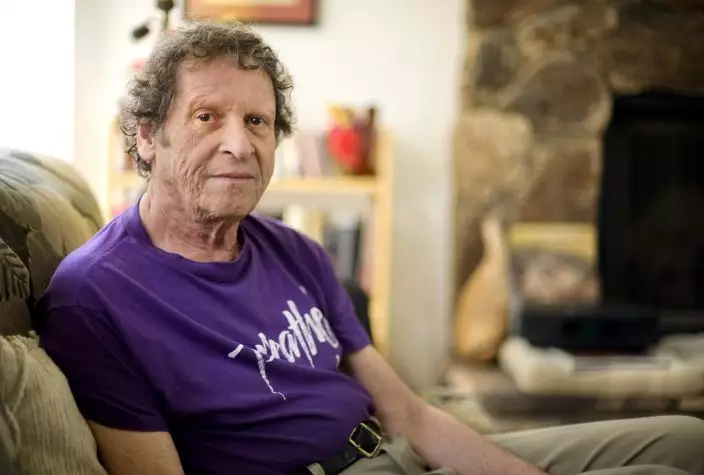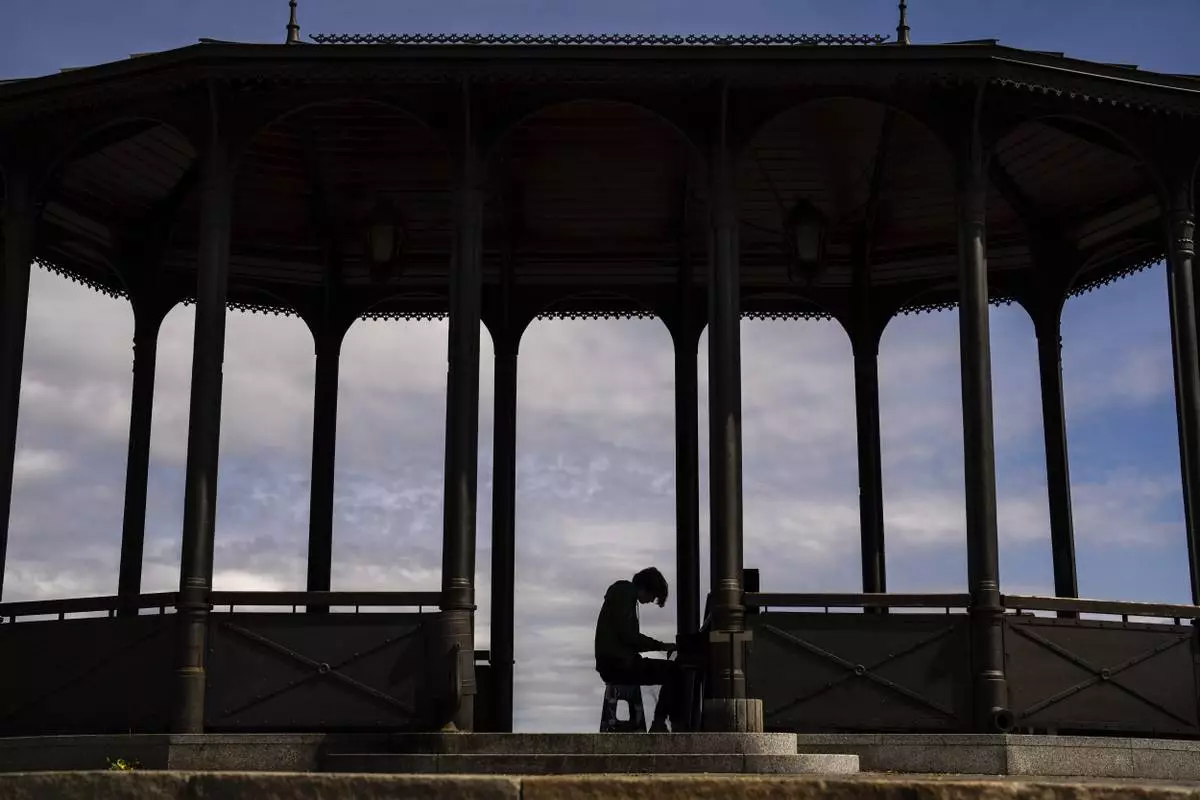Paul Krassner, the publisher, author and radical political activist on the front lines of 1960s counterculture who helped tie together his loose-knit prankster group by naming them the Yippies, died Sunday in Southern California, his daughter said.
Krassner died at his home in Desert Hot Springs, Holly Krassner Dawson told The Associated Press. He was 87 and had recently transitioned to hospice care after an illness, Dawson said. She didn't say what the illness was.
The Yippies, who included Jerry Rubin and Abbie Hoffman and were otherwise known as the Youth International Party, briefly became notorious for such stunts as running a pig for president and throwing dollar bills onto the trading floor of the New York Stock Exchange. Hoffman and Rubin, but not Krassner, were among the so-called "Chicago 7" charged with inciting riots at 1968's chaotic Democratic National Convention.

FILE - In this May 7, 2009, file photo, author, comedian and co-founder of the Yippie party as well as stand-up satirist, Paul Krassner, 77, poses for a photo at his home in Desert Hot Springs, Calif. Krassner, the publisher, author and radical political activist on the front lines of 1960s counterculture who helped tie together his loose-knit prankster group by naming them the Yippies, has died. His daughter, Holly Krassner Dawson, says Krassner died Sunday, July 21, 2019, at his home in Desert Hot Springs. He was 87. (AP PhotoEric Reed, File)
By the end of the decade, most of the group's members had faded into obscurity. But not Krassner, who constantly reinvented himself, becoming a public speaker, freelance writer, stand-up comedian, celebrity interviewer and author of nearly a dozen books.
"He doesn't waste time," longtime friend and fellow counterculture personality Wavy Gravy once said of him. "People who waste time get buried in it. He keeps doing one thing after another."
He interviewed such celebrity acquaintances as authors Norman Mailer and Joseph Heller and the late conservative pundit Andrew Breitbart. The latter, like other conservatives, said that although he disagreed with everything Krassner stood for, he admired his sense of humor.
An advocate of unmitigated free speech, recreational drug use and personal pornography, Krassner's books included such titles as "Pot Stories For The Soul" and "Psychedelic Trips for the Mind," and he claimed to have taken LSD with numerous celebrities, including comedian Groucho Marx, LSD guru Timothy Leary and author Ken Kesey.
He also published several books on obscenity, some with names that can't be listed here. Two that can are "In Praise of Indecency: Dispatches From the Valley of Porn" and "Who's to Say What's Obscene: Politics, Culture & Comedy in America Today."
For his autobiography, Krassner chose the title, "Confessions of a Raving, Unconfined Nut: Misadventures in the Counterculture," using a phrase taken from an angry letter to the editor of a magazine that had once published a favorable profile of him.
"To classify Krassner as a social rebel is far too cute," the letter writer said. "He's a nut, a raving, unconfined nut."
What he really was, Krassner told The Associated Press in 2013, was a guy who enjoyed making people laugh, although one who brought a political activist's conscience to the effort.
He noted proudly that in the early 1960s, when abortion was illegal in almost every state, he ran an underground abortion referral service for women.
"That really was a turning point in my life because I had morphed from a satirist into an activist," he said.
His original career choice, however, had been music.
A child prodigy on the violin, he performed at Carnegie Hall at age 6. Later he all but gave up the instrument, only occasionally playing it as a joke during lectures or comedy routines.
"I only had a technique for playing the violin, but I had a real passion for making people laugh," he would say.
After studying journalism at New York's Baruch College, Krassner went to work for Mad Magazine before founding the satirical counterculture magazine The Realist in 1958. He continued to publish it periodically into the 1980s.
For a time in the 1950s, he also appeared on the stand-up comedy circuit. There, he would meet his mentor, Lenny Bruce, the legendary outlaw comic who pushed free speech to its limits with routines filled with obscenities and sexual innuendo that sometimes landed him in jail.
Krassner interviewed Bruce for Playboy Magazine in 1959 and edited the comedian's autobiography, "How To Talk Dirty and Influence People."
When the counterculture arrived in earnest in the '60s, Krassner was working as a comedian, freelance writer, satirist, publisher, celebrity interviewer and occasional creator of soft-core pornography. To mark the death of Walt Disney in 1966, he published a colorful wall poster showing Disney cartoon characters engaging in sex acts.
When he and other anti-war activists, free-speech advocates and assorted radicals began to plot ways to promote their causes, Krassner said he soon realized they would need a clever name if they wanted to grab the public's attention.
"I knew that we had to have a 'who' for the 'who, what, where, when and why' that would symbolize the radicalization of hippies for the media," Krassner, who co-founded the group, told the AP in 2009. "So I started going through the alphabet: Bippie, Dippie, Ippie, Sippie. I was about to give up when I came to Yippie."
As one of the last surviving Yippies, he continued to write prolifically up until his death.










